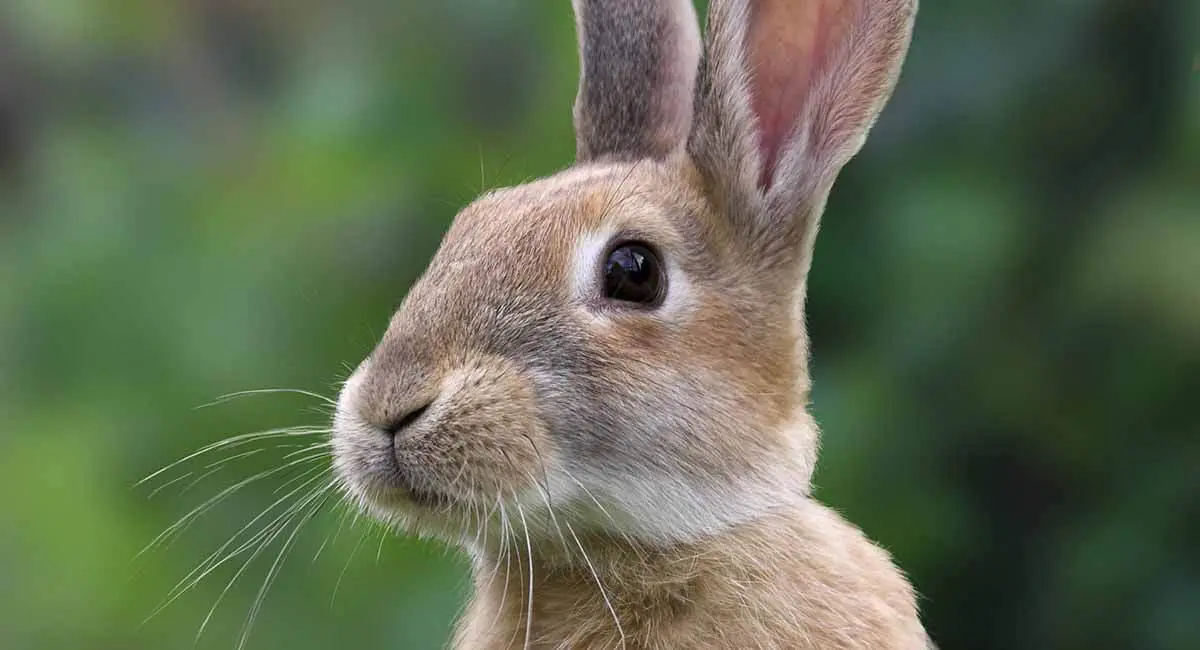Rabbit Lifespan: How to Help Your Rabbit Live Longer

Rabbits are known to be relatively short-lived animals when compared to other pets such as dogs and cats. The average lifespan of a house rabbit is eight to twelve years, but with proper care they can live up to fifteen years or more! Here are some tips on how you can help your rabbit enjoy a long and healthy life.
Provide plenty of fresh hay, vegetables, and water for your rabbit to eat and drink. A diet rich in fiber will help keep their digestive system running smoothly and prevent problems such as obesity and constipation.
Give your rabbit plenty of space to exercise both inside and outside of their cage.
A good rule of thumb is that they should have an area that is at least twice the size of their cage for them to run around in.
Make sure your rabbit has regular checkups with a veterinarian who is experienced in treating rabbits. This will help catch any health problems early on so that they can be treated quickly and effectively.
As a pet owner, you want your furry friend to stick around for as long as possible. Here are some tips on how to help your rabbit live a longer, healthier life:
1. Provide a healthy diet.
A diet rich in fiber and low in sugar is best for rabbits. Be sure to offer hay, fresh vegetables, and water at all times.
2. Keep them active.
Exercise is important for rabbits, so make sure they have plenty of space to run and play.
3. Keep their environment clean. A clean cage or hutch will help prevent disease and keep your rabbit healthy overall.
4. Take them to the vet regularly . Annual checkups and vaccinations are a must for rabbits. This will help catch any health problems early on and provide the best chance for treatment success .
Rabbit Lifespan: How to Help Your Rabbit Live Longer
How Long Do Rabbits Live As Pets Indoors
Rabbits are becoming increasingly popular as pets, and for good reason! They are intelligent, social creatures that bond closely with their owners. Rabbits make great indoor pets because they are relatively low-maintenance and can be litter box trained.
But how long do rabbits live as pets indoors?
The average lifespan of a pet rabbit is 8-12 years, but some rabbits have been known to live into their teens. The key to a long and healthy life for your rabbit is proper care and nutrition.
A diet of fresh hay, vegetables, and a small amount of pellets will keep your rabbit healthy and help them live a long life.
Rabbits are also susceptible to health problems just like any other pet. The most common health problems in rabbits include dental issues, GI stasis (a potentially fatal condition), and respiratory infections.
Regular vet checkups can help catch these problems early and improve the chances of a full recovery.
With proper care, your rabbit can be a beloved member of the family for many years to come!
How Long Do Rabbits Live As Pets Outside
Rabbits are a popular pet for many people, and they can make great companions. However, before you get a rabbit, it’s important to know that they have different needs than other pets like dogs or cats. One of the most important things to consider is how long rabbits live as pets outside.
Generally speaking, rabbits can live anywhere from 8-12 years in captivity. However, if they are kept outdoors as pets, their lifespan will be much shorter. The average lifespan for an outdoor rabbit is only 2-5 years.
This is because they are susceptible to predators and the elements.
If you’re considering getting a rabbit as a pet, it’s important to be aware of their needs and how long they typically live. With proper care, your rabbit can be a furry friend for many years to come!
How Long Do Unspayed Rabbits Live
The average lifespan of an unspayed rabbit is about 5-8 years. However, there are many factors that can affect a rabbit’s lifespan, such as diet, exercise, and environment. For example, a Rabbit that lives outdoors will have a shorter lifespan than one who lives indoors.
Diet also plays a big role in a Rabbit’s lifespan; rabbits who eat a high-fiber diet will live longer than those who don’t.
Exercise is important for all animals, but it’s especially important for rabbits. A sedentary lifestyle can lead to obesity and other health problems that can shorten a Rabbit’s life.
Providing your Rabbit with plenty of toys and space to run around will help them stay healthy and active into old age.
Finally, the quality of care you provide can also affect how long your Rabbit lives. Proper veterinary care is essential for keeping your Rabbit healthy and preventing serious illnesses.
If you give your Rabbit the best possible care, they’ll be able to enjoy a long and happy life!
How Long Do Unneutered Male Rabbits Live
The average lifespan of an unneutered male rabbit is about five years. However, there are many factors that can affect a rabbit’s life expectancy, such as diet, exercise, and overall health.
Rabbits are social creatures and do best when they live with other rabbits.
If you have an unneutered male rabbit, it is important to find him a female companion to live with. This will help him stay healthy and happy throughout his life.
It is also important to provide your rabbit with a healthy diet and plenty of exercise.
A diet rich in hay, vegetables, and water will help keep your rabbit healthy and fit. Exercise is essential for all rabbits, but especially for those who are not neutered. Providing your rabbit with a spacious enclosure to run around in will help him stay active and fit.
Overall, the best way to ensure a long and happy life for your unneutered male rabbit is to provide him with a good home environment, a healthy diet, and plenty of exercise.
:max_bytes(150000):strip_icc()/rabbit-lifespan-4582447-hero-ce67731d1af34346909ef50647e30142.jpg)
Credit: www.thesprucepets.com
How Can I Help My Rabbit Live Longer?
There are a number of things you can do to help your rabbit live a long and healthy life. Here are some tips:
1. Provide plenty of fresh, clean water at all times.
Water is essential for rabbits and they should have access to it 24/7.
2. Feed your rabbit a diet that is high in fiber and low in sugar. A healthy diet will help keep your rabbit’s digestive system functioning properly and prevent obesity, which can lead to health problems down the road.
3. Give your rabbit plenty of exercise every day. Rabbits are active creatures and need space to run around and play. A lack of exercise can lead to boredom, depression, and weight gain – all of which shorten a rabbit’s lifespan.
4. Keep your rabbit’s living quarters clean and free from hazards. A messy cage or cluttered home can be dangerous for rabbits and put them at risk for injury or illness. Regularly cleaning their environment will help keep them safe and healthy.
5 . Have your rabbit spayed or neutered . This simple surgical procedure has many benefits for rabbits, including reducing their risk of certain cancers and extending their lifespan by two to three years on average .
Can a Rabbit Live for 20 Years?
Yes, a rabbit can live for 20 years. In fact, the oldest recorded rabbit lived to be 28 years old! However, the average lifespan of a pet rabbit is 10-12 years.
So while it is possible for a rabbit to live for 20 years, it is not very likely.
There are several things that you can do to help your rabbit live a long and healthy life. First, make sure that you are feeding your rabbit a high quality diet of hay, fresh vegetables, and a small amount of pellets.
Secondly, provide your rabbit with plenty of opportunities to exercise and play. And finally, take your rabbit to the vet regularly for checkups and vaccinations.
By following these simple tips, you can help your bunny friend enjoy a long and healthy life!
What Would a Rabbit Need to Stay Alive?
Assuming you are asking about pet rabbits:
Rabbits are social animals and need companionship to stay healthy. A single rabbit should have a spayed or neutered partner of the opposite sex.
Two intact rabbits of the same sex will often fight. If you cannot provide a bonded pair, your rabbit will need extra human interaction and attention.
Rabbits also need a place to call home.
The minimum size hutch for two medium sized rabbits should be 6ft x 2ft x 2ft, with an attached run at least 8ft x 4ft x 4ft. It is best to have the hutch off the ground to protect your rabbits from predators and flooding. Your rabbits will also appreciate some form of shelter in their run, whether it’s a purpose-built lean-to or simply some strategically placed branches.
How Long Do Indoor Rabbits Live?
Rabbits are a popular pet for many people, and indoor rabbits can make great companions. But how long do indoor rabbits live?
Indoor rabbits typically have a lifespan of 8 to 12 years, though some may live even longer.
This is generally longer than the lifespan of outdoor rabbits, which only live an average of 2 to 5 years.
There are several factors that contribute to a rabbit’s lifespan, such as diet, exercise, and genetics. For example, dwarf breeds of rabbits tend to live shorter lives than larger breeds like Flemish Giants.
Providing your rabbit with a healthy diet and plenty of exercise is the best way to help them live a long and happy life. Indoor rabbits should have access to fresh hay, vegetables, and water at all times. A good rule of thumb is that your rabbit should consume about 1 ounce of food per pound of body weight each day.
Exercise is also important for keeping your rabbit healthy and fit. Set up an exercise area for your bunny with toys and obstacles to jump over or under. Let them play in this area for at least 30 minutes each day.
If you take good care of your indoor rabbit and provide them with everything they need, they will likely have a long and happy life!
Conclusion
Rabbits are wonderful, intelligent creatures that make great pets. They typically have a lifespan of 8-12 years, but with proper care, they can live much longer. Here are some tips to help your rabbit live a long and healthy life:
Provide plenty of fresh water at all times.
Give your rabbit a balanced diet of hay, fresh vegetables, and a small amount of pellets.
Make sure your rabbit has plenty of opportunity to exercise.
Keep your rabbit’s home clean and free from hazards.
See your veterinarian regularly for checkups and vaccinations.
By following these simple guidelines, you can help your rabbit enjoy a long and happy life.
